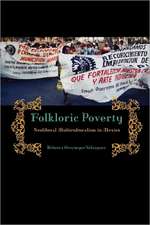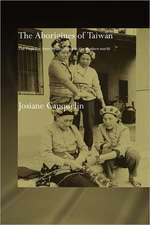Power and Performance: Ethnographic Explorations through Proverbial Wisdom and Theater in Shaba, Zaire: New Directions in Anthropological Writing
Autor Johannes Fabianen Limba Engleză Paperback – 15 oct 1990
In 1985 Johannes Fabian, while engaged in fieldwork in the Shaba province of Zaire, first encountered this saying. Its implications—for the charismatic religious movements Fabian was examining, for the highly charged political atmosphere of Zaire, and for the cultures of the Luba peoples—continued to intrigue him, though its meaning remained elusive. On a later visit, he mentioned the saying to a company of popular actors, and triggered an ethnographic brainstorm. “Spontaneously, they decided it would be just the right topic for their next play. On the spot they began planning—suggestions for a plot were made, problems of translating the French term ‘pouvoir’ were debated, several actors cited sayings and customs from their home villages. . . .”
Power and Performance examines traditional proverbs about power as it illustrates how the performance of Le pouvoir se mange entier was created, rehearsed, and performed. The play deals with the issue of power through a series of conflicts between villagers and their chief. Both rehearsal and performance versions of the text of this drama are included, in Swahili and in English translation.
Power and Performance examines traditional proverbs about power as it illustrates how the performance of Le pouvoir se mange entier was created, rehearsed, and performed. The play deals with the issue of power through a series of conflicts between villagers and their chief. Both rehearsal and performance versions of the text of this drama are included, in Swahili and in English translation.
Preț: 205.28 lei
Nou
Puncte Express: 308
Preț estimativ în valută:
39.28€ • 42.66$ • 32.100£
39.28€ • 42.66$ • 32.100£
Carte tipărită la comandă
Livrare economică 23 aprilie-07 mai
Preluare comenzi: 021 569.72.76
Specificații
ISBN-13: 9780299125141
ISBN-10: 0299125149
Pagini: 336
Dimensiuni: 152 x 229 x 28 mm
Greutate: 0.5 kg
Editura: University of Wisconsin Press
Colecția University of Wisconsin Press
Seria New Directions in Anthropological Writing
ISBN-10: 0299125149
Pagini: 336
Dimensiuni: 152 x 229 x 28 mm
Greutate: 0.5 kg
Editura: University of Wisconsin Press
Colecția University of Wisconsin Press
Seria New Directions in Anthropological Writing
Recenzii
“Power is eaten whole” (“Le pouvoir se mange entire”).
Notă biografică
Johannes Fabian is professor in the Department of Cultural Anthropology and Non-Western Sociology at the University of Amsterdam. His many publications include the influential Time and the Other: How Anthropology Makes Its Object
Descriere
In 1985 Johannes Fabian, while engaged in fieldwork in the Shaba province of Zaire, first encountered this saying. Its implications—for the charismatic religious movements Fabian was examining, for the highly charged political atmosphere of Zaire, and for the cultures of the Luba peoples—continued to intrigue him, though its meaning remained elusive. On a later visit, he mentioned the saying to a company of popular actors, and triggered an ethnographic brainstorm. “Spontaneously, they decided it would be just the right topic for their next play. On the spot they began planning—suggestions for a plot were made, problems of translating the French term ‘pouvoir’ were debated, several actors cited sayings and customs from their home villages. . . .”
Power and Performance examines traditional proverbs about power as it illustrates how the performance of Le pouvoir se mange entier was created, rehearsed, and performed. The play deals with the issue of power through a series of conflicts between villagers and their chief. Both rehearsal and performance versions of the text of this drama are included, in Swahili and in English translation.
Power and Performance examines traditional proverbs about power as it illustrates how the performance of Le pouvoir se mange entier was created, rehearsed, and performed. The play deals with the issue of power through a series of conflicts between villagers and their chief. Both rehearsal and performance versions of the text of this drama are included, in Swahili and in English translation.



















